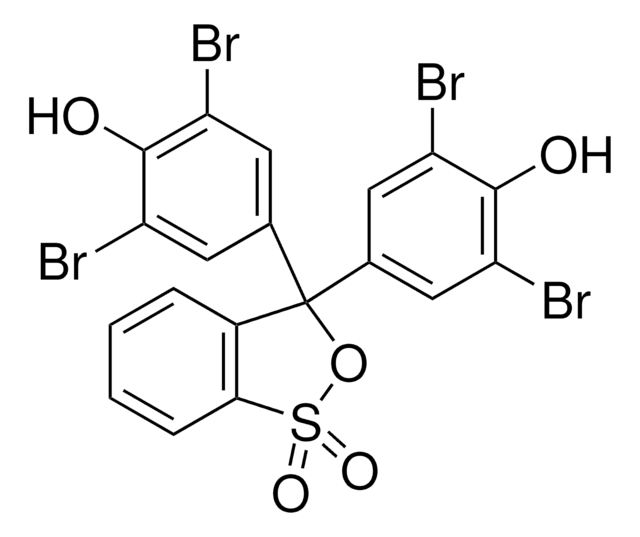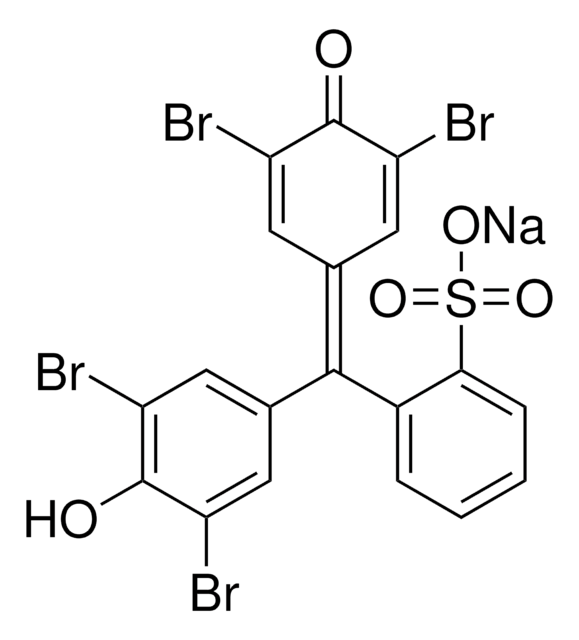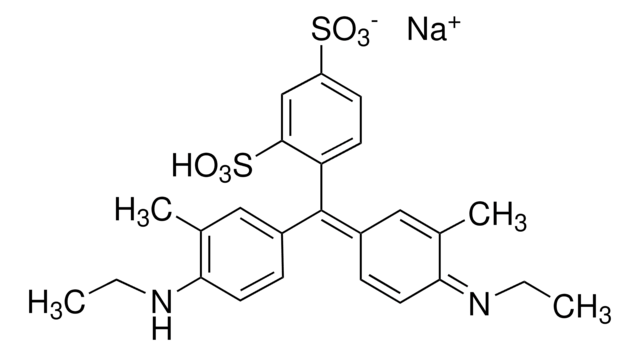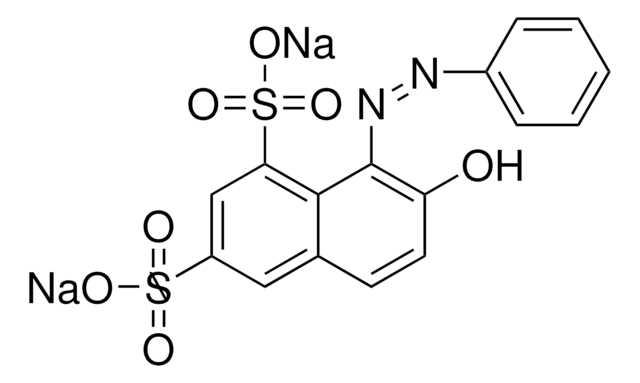B5525
Bromophenol Blue sodium salt
Synonym(s):
3′,3′′,5′,5′′-Tetrabromophenolsulfophthalein sodium salt
About This Item
Recommended Products
form
powder
Quality Level
technique(s)
electrophoresis: suitable
solubility
water: soluble
suitability
suitable for nucleic acid electrophoresis
storage temp.
room temp
SMILES string
[Na+].Oc1c(Br)cc(cc1Br)C(=C2/C=C(Br)C(=O)C(Br)=C2)\c3ccccc3S([O-])(=O)=O
InChI
1S/C19H10Br4O5S.Na/c20-12-5-9(6-13(21)18(12)24)17(10-7-14(22)19(25)15(23)8-10)11-3-1-2-4-16(11)29(26,27)28;/h1-8,24H,(H,26,27,28);/q;+1/p-1
InChI key
TWKDJMRHSLWRFI-UHFFFAOYSA-M
Looking for similar products? Visit Product Comparison Guide
Related Categories
General description
Application
Reconstitution
related product
Storage Class
11 - Combustible Solids
wgk_germany
WGK 3
flash_point_f
Not applicable
flash_point_c
Not applicable
ppe
Eyeshields, Gloves, type N95 (US)
Certificates of Analysis (COA)
Search for Certificates of Analysis (COA) by entering the products Lot/Batch Number. Lot and Batch Numbers can be found on a product’s label following the words ‘Lot’ or ‘Batch’.
Already Own This Product?
Find documentation for the products that you have recently purchased in the Document Library.
Customers Also Viewed
Our team of scientists has experience in all areas of research including Life Science, Material Science, Chemical Synthesis, Chromatography, Analytical and many others.
Contact Technical Service





